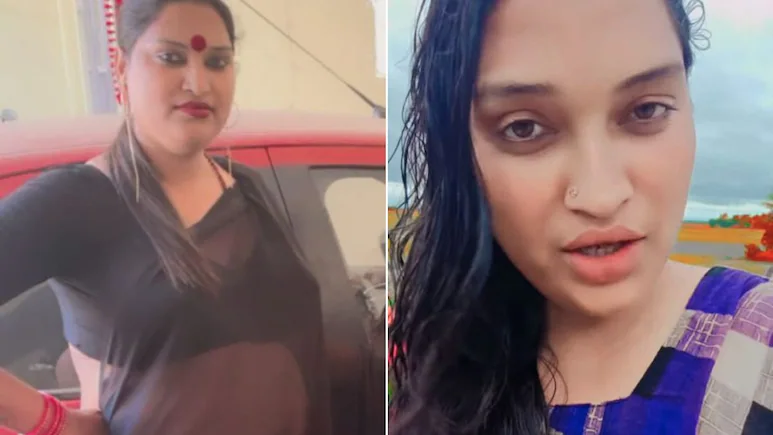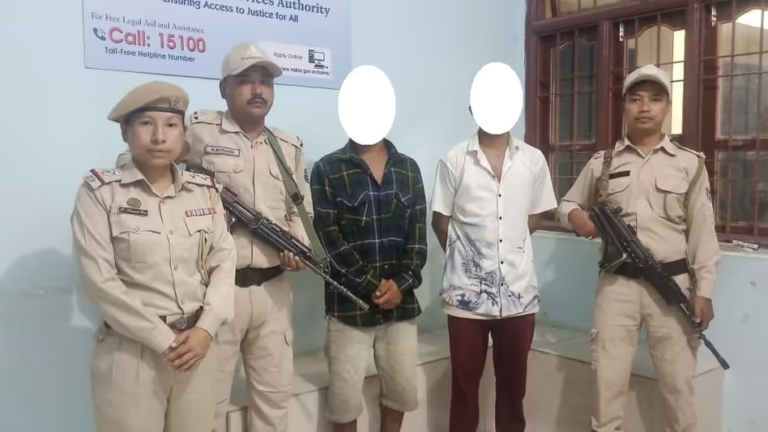Under the Mask: The Incredible Neha-Abdul Identity Fraud in Bhopal
Summary
A shocking identity fraud in Bhopal has uncovered a Bangladeshi national, Abdul Kalam, who lived in India for nearly 30 years—eight of them as “Neha,” a transgender individual—holding forged Aadhaar, passport, and voter ID. He integrated into the local hijra community and even traveled abroad using fake credentials. Now detained under the Foreigners Act, his case raises pressing questions about national security, border control, and the integrity of identity systems.
1. Introduction – What’s the Real Story Here?
Ever had your world turned upside down by someone living next door? That’s exactly what happened in Bhopal when Neha—seemingly one among the vibrant hijra community—was revealed to be Abdul Kalam, a Bangladeshi national living in India undetected for decades. It’s the kind of mind-bender you’d expect in a thriller. But this is real life—and it gives us a peek into the cracks in our identity and security systems.
2. Who Is Abdul/Neha?
So, who is this person?
- Abdul Kalam, originally from Bangladesh, came to India at age 10.
- He lived nearly 20 years in Mumbai before settling in Bhopal’s Budhwara area.
- For eight years, he presented as Neha, a transgender woman recognized by local LGBTQ+ circles.
- He obtained essential documents—Aadhaar, voter ID, ration card, and even an Indian passport—using forged paperwork.
Imagine someone you confidently greet with “hi Neha” turns out to be Abdul, slipping past every layer of identity checks. It’s not just deception—it’s a wake-up call.
3. The Discovery – How the Net Closed In
Abdul didn’t slip up on his own. Police reveal the breakthrough came via a tip-off from an informer, followed by a smart, intelligence-led operation.
- Officers quietly verified his gender identity, checked natal records, and uncovered inconsistencies.
- A full sweep of his documents revealed forged IDs and a fake passport, raising alarm as he’d used it for foreign travel.
- The Intelligence Bureau and Anti-Terrorism Squad also joined the probe, given the gravity of identity fraud.
This case exposes not casual misrepresentation, but a deep-rooted, carefully constructed fraud.
4. Why Pose as a Transgender Person?
This is the plot twist: Why would Abdul choose that disguise?
- Less scrutiny? Transgender individuals often avoid rigorous police questioning, relying on community support.
- Anonymity within community? Living comfortably within a close-knit hijra circle, one may disappear from mainstream detection.
- Ease of movement? Forged documents under that identity allow blending in and even traveling abroad.
We don’t yet know if he identifies as transgender—medical verification is underway—or if the identity was purely strategic. But either way, the implications are huge.
5. The Passport Revelation & International Journey
Here’s the jarring part: Abdul used a forged Indian passport not just to hide locally, but to travel to Bangladesh and back.
That means:
- He passed immigration checks multiple times.
- There was zero immigration alert despite age-consistent travel records.
- Someone helped produce the passport—pointing to a larger forgery network.
This isn’t just identity theft—it’s international travel under false pretenses.
6. The Forgery Network – Just One Link or an Entire Chain?
Authorities are investigating:
- Local agents who helped forge documents and facilitate passport creation.
- Youth accomplices in Bhopal who helped procure IDs.
- Possible handlers or facilitators in Maharashtra, Bangladesh, or beyond.
- Hijra community involvement—they’re interviewing whether others were complicit knowingly or not.
One man doesn’t do this alone. This smells like an organized racket layering identity fraud and illegal migration.
7. Legal Face-Off – What Comes Next?
Abdul is currently held for 30 days under the Foreigners Act. Here’s how things may unfold:
- Gender verification tests will be conducted to confirm the biological identity.
- Document analysis of forged IDs will proceed—Aadhaar centers, passport offices, and ration card systems will be combed.
- Forensic data extraction from his phone will follow—calls, chats, location data, contacts, and transaction logs will provide clues.
- Deportation processes will start—but not before the background network is dismantled.
- Criminal charges under the Passport Act, Identification Fraud laws, and possibly even money-laundering statutes await.
Will justice be swift? That depends how deep the network runs—and how well authorities act beyond the tip-off.
FAQs
Q1: Who exactly is Neha/Abdul Kalam?
He’s a Bangladeshi national who entered India around age 10, lived in Mumbai, then moved to Bhopal as Neha, presenting as transgender for about eight years.
Q2: How did he manage to live under a fake identity?
Through forged documents—Aadhaar, voter ID, ration card, passport—helped by local agents and possibly community members.
Q3: Is he really transgender?
That’s undetermined. A medical verification is underway to confirm whether it was genuine identity or a cover.
Q4: Did he travel outside India on his fake passport?
Yes, he reportedly traveled to Bangladesh and back using a counterfeit Indian passport—raising serious border security concerns.
Q5: Will this affect the hijra community in Bhopal?
Unfortunately it may foster suspicion. But community leaders emphasize the importance of not generalizing or stigmatizing, as many were unaware or not complicit.




